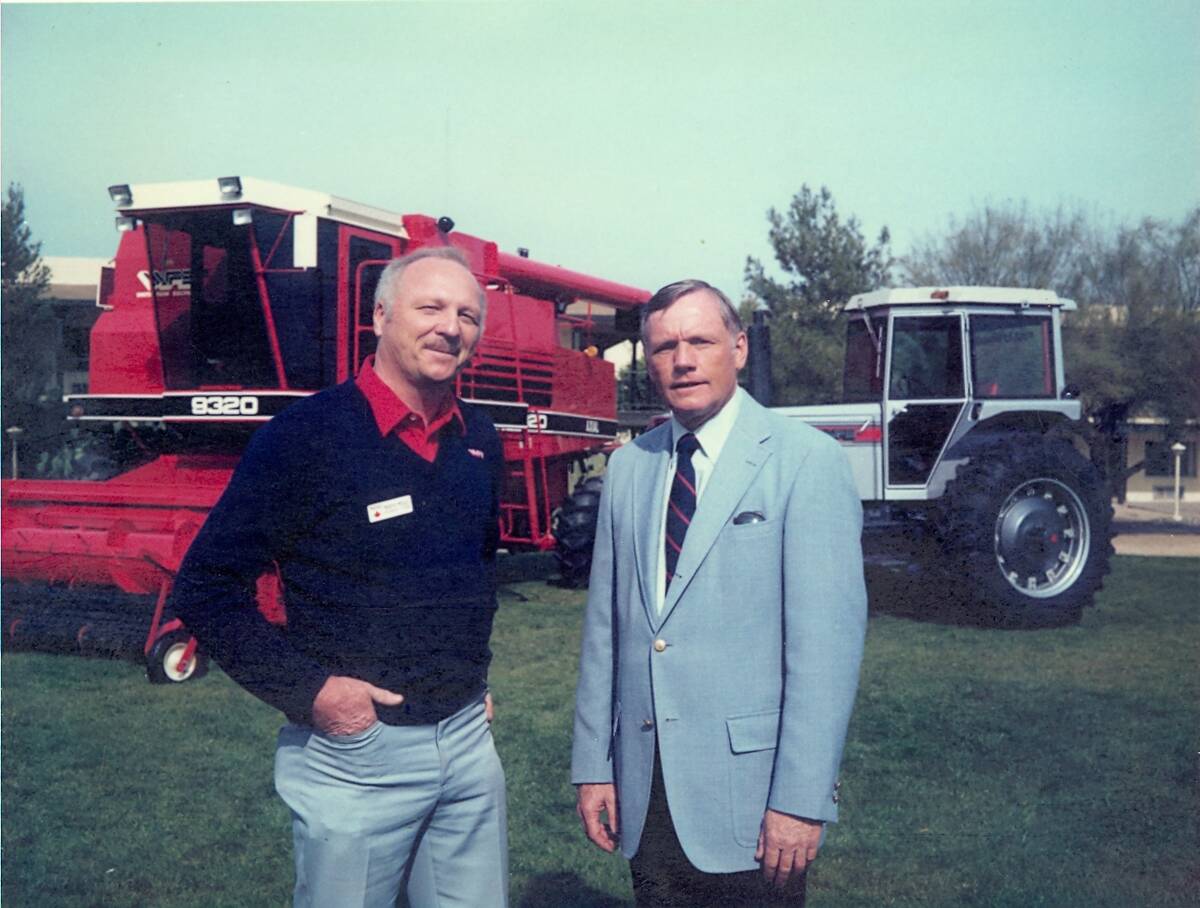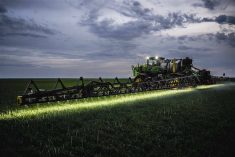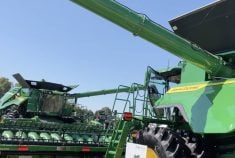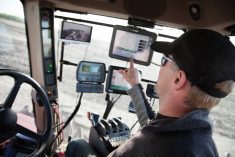Rural internet improvements may have implications for precision agriculture, farm technology — and Netflix binging.
“We all hate waiting for that circle of death,” said Trevor Armitage, vice-president of global operations at Farmers Edge, referring to the familiar buffering symbol used while waiting for available bandwidth to catch up to demand.
He said user experience drives much of technology uptake. If it takes too long to load, producers may just go back to what they know.
Read Also

Right stuff, wrong time: How a team in Ontario developed the highest-capacity rotary combine of its day
Innovations by a team at Brantford, Ont. in the late ’60s would lead to the production of the biggest rotary combine of that time. Then the manufacturer went bankrupt.
On August 2, the federal government announced just under $8 million in funding for internet improvements for rural communities in south-central Manitoba. A similar announcement was made in January 2018.
Winkler-based Valley Fibre will get $6.9 million and Lockport-based High Speed Crow will get slightly less than $800,000 to bring broadband internet to rural communities. Both companies are chipping in some of their own funds.
Armitage said he’s sat in kitchens with farmers trying to boot up Farmers Edge software and said, “Oh my goodness. I can’t believe this isn’t loading.”
“You’re just sitting there helpless,” he said.
In a 2017 survey from Agriculture and Agri-Food Canada, 45 per cent of farmers said internet speed or cellular coverage was a “significant barrier” to adopting precision agriculture technology.
The survey covered Alberta, Saskatchewan and Manitoba and had 261 respondents.
While 98 per cent of farmers said they had access to internet, 52 per cent said they were unsatisfied or very unsatisfied with the speed of their connection. Eighty-four per cent said they used precision agriculture technology on their farm.
Adam Gurr farms in the Brandon area. When he moved to his home 18 miles north of Brandon, internet and cell service were intermittent and poor quality.
“There were a lot of dead zones,” said Gurr. “There were some fields we couldn’t even send a text from.”
Recently Telus put up a tower in the area and phone service has improved. His internet service has also improved over the years — enough to stream movies.
“It’s still nothing like living in the city,” said Gurr. “We’re paying too much for our internet.”
He said he pays probably three times as much as a city-dweller might, and has strict data limits. Sometimes they exceed their limit, internet slows down to dial-up speeds. This wastes a lot of time, as sometimes he has to drive elsewhere to get service.
Gurr’s farm has been using scouting apps for five years, and he said he generally finds Wi-Fi and cell service adequate. He said he uses a USB drive to transfer data to his computer, which doesn’t require a connection.
“This will change rural internet, no doubt,” said Conley Kehler, senior vice-president of Valley Fibre. Kehler said faster internet will have a positive effect on emergency services and education, as well as streaming services.
Valley Fibre’s network is a “high-density” build, said Kehler. Each customer gets their own strand of fibre, giving consistent speed.
“It doesn’t matter what mile road you’re on,” Kehler said.
Kehler said Valley Fibre will be consulting with rural municipalities in the next few weeks, and he hopes to be putting fibre in the ground by next spring or summer.
















